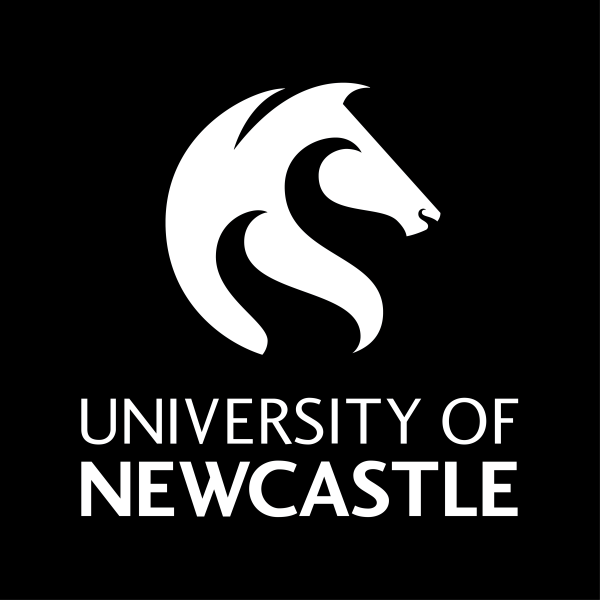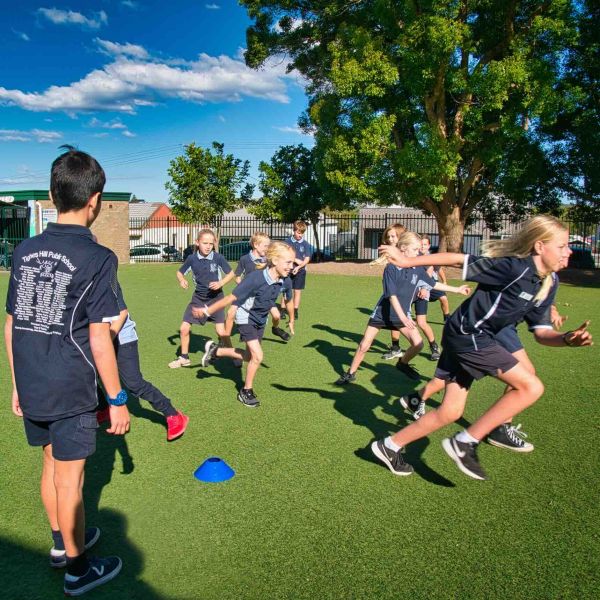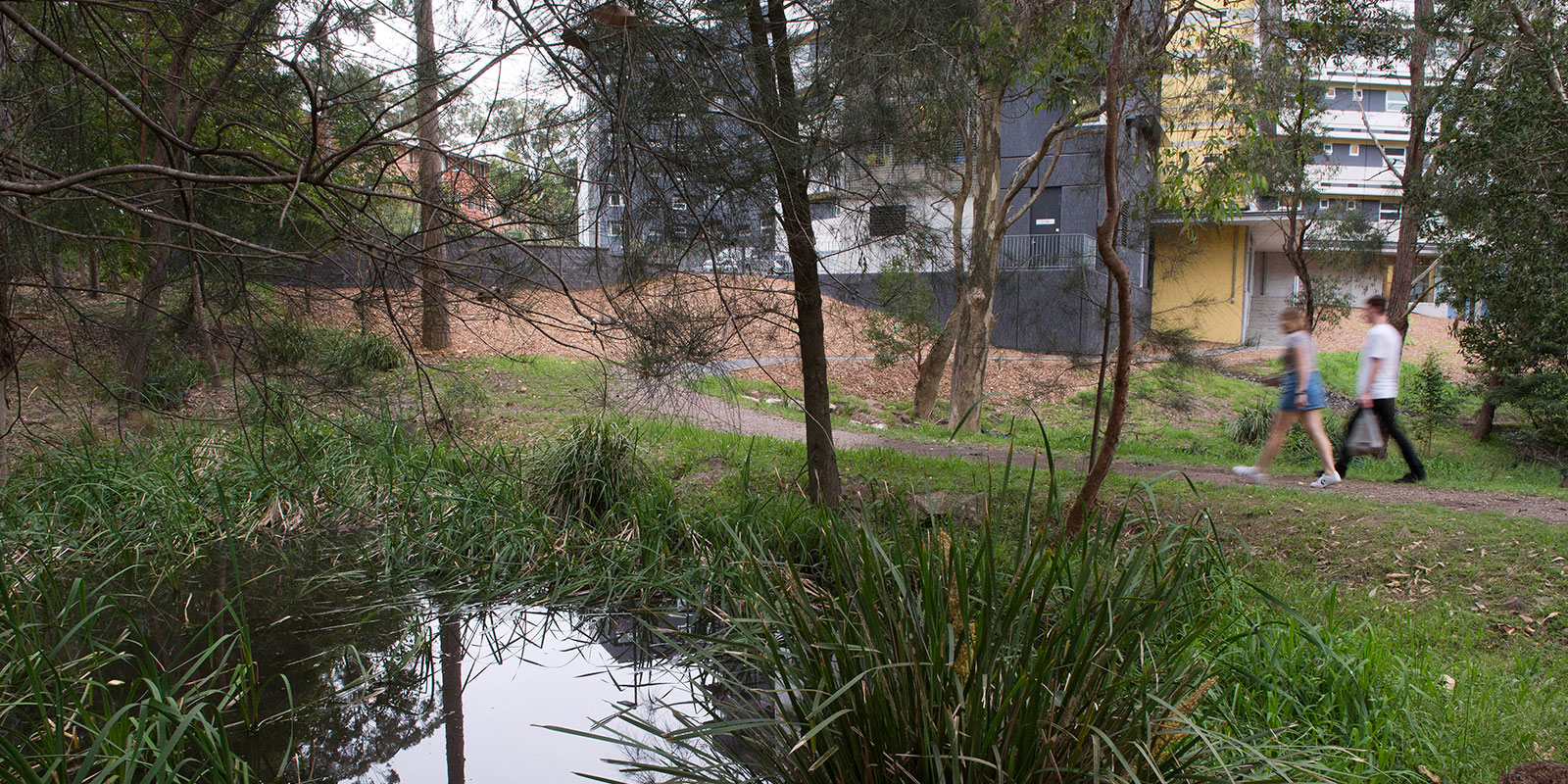
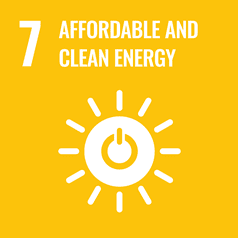
Goal 7:
Affordable and Clean Energy
Local Community Outreach for Energy Efficiency
The University of Newcastle provides programs to educate the local community about the importance of energy efficiency and clean energy.
In 2024, through the Centre for Organic Electronics (COE), we continued to raise awareness about solar technology and clean energy solutions. COE is a global leader in the exciting emerging field of 'functional printing', which uses conventional printing technologies to manufacture clever, high performing, low-cost materials to help solve some of the world's greatest challenges.
The Centre for Organic Electronics is marrying the creation of clever electronic inks with well-established printing technologies to address global challenges spanning renewable energy, health & medicine, and mining safety.
Their core focus is on translating cutting edge research for real world impact. As such, they partner with business, industry and government to generate products, systems and services that benefit our global community.
The COE is multidisciplinary, with expertise spanning physics, chemistry, engineering, biology, health, design and communications. This depth and breadth of talent and expertise enables us to successfully manage projects from end-to-end.
Research themes include:
- printed solar
- biosensors & bioelectronics
- artificial colour retina
- scanning helium microscopy (SHeM)
- medical physics
Not just a hub for innovative research, the COE is one of the only research facilities in the world capable of also manufacturing printed electronic devices at commercial scale.
The University of Newcastle's Centre for Organic Electronics (COE) Successfully Hosted Its 14th Annual Spring School in 2024
In 2024, this three-day event provided undergraduate students from various disciplines, including Science, Math, IT, Engineering, and Medical Sciences, with an opportunity to explore cutting-edge research in organic electronics. The program featured lectures from local and international experts, hands-on experiences in COE labs, and interactive think tank sessions aimed at inspiring students to pursue research careers. Highlights included fabricating organic solar cells, operating advanced microscopes, racing simulated EV cars, and learning about Printed Solar and its recycling. Accredited by CIFAL Newcastle and the United Nations Institute for Training and Research (UNITAR), students received formal recognition for their participation. The event, sponsored by Spruson & Ferguson Intellectual Property and the Australian National Fabrication Facility, saw students awarded for solar cell efficiency and EV racing. Following the event’s success, many students expressed interest in continuing their research journey with the COE.
In December 2024, University-made Printed Solar powered Coldplay concerts in COE partnership.
Coldplay has made significant commitments to sustainability, continuously exploring and applying new technologies to reduce their environmental impact. This partnership was another step towards achieving their ambitious sustainability goals to reduce their tour’s carbon emissions by 50%.
An array of 500 square meters (about twice the area of a tennis court) of Printed Solar was placed behind the seats behind the stage and elsewhere in the venue to collect power in battery packs. These batteries were then used to power Coldplay’s C Stage and fulfil other ancillary power needs throughout the venue.
Printed Solar uses organic photovoltaics (OPVs) which are a next-generation solar cell technology that uses organic compounds to convert sunlight into electricity. Now producing at scale with the support of the Newcastle Australian National Fabrication Facility (ANFF) Hub, located at the Newcastle Institute for Energy and Resources (NIER). Manufactured with PET plastic using roll-to-roll printing techniques and fully recycled in-house, Printed Solar is one of the lowest emission-intensive energy sources available.
Dr Ben Vaughan, Hub Manager for the ANFF, says Printed Solar has enormous potential for a variety of applications.
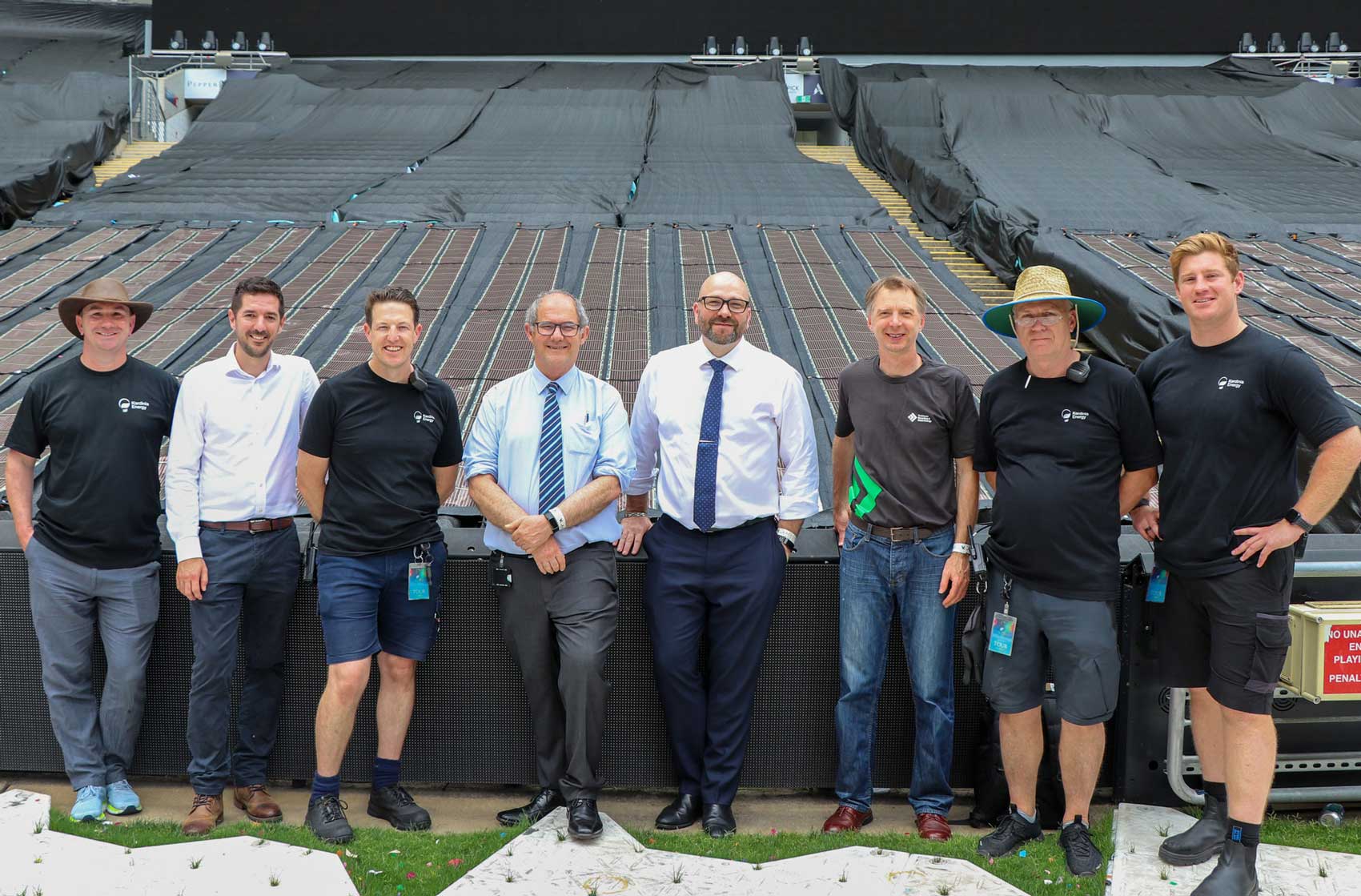
Members of TRaCE, NIER, COE and Kardinia Energy backstage at Accor Stadium.
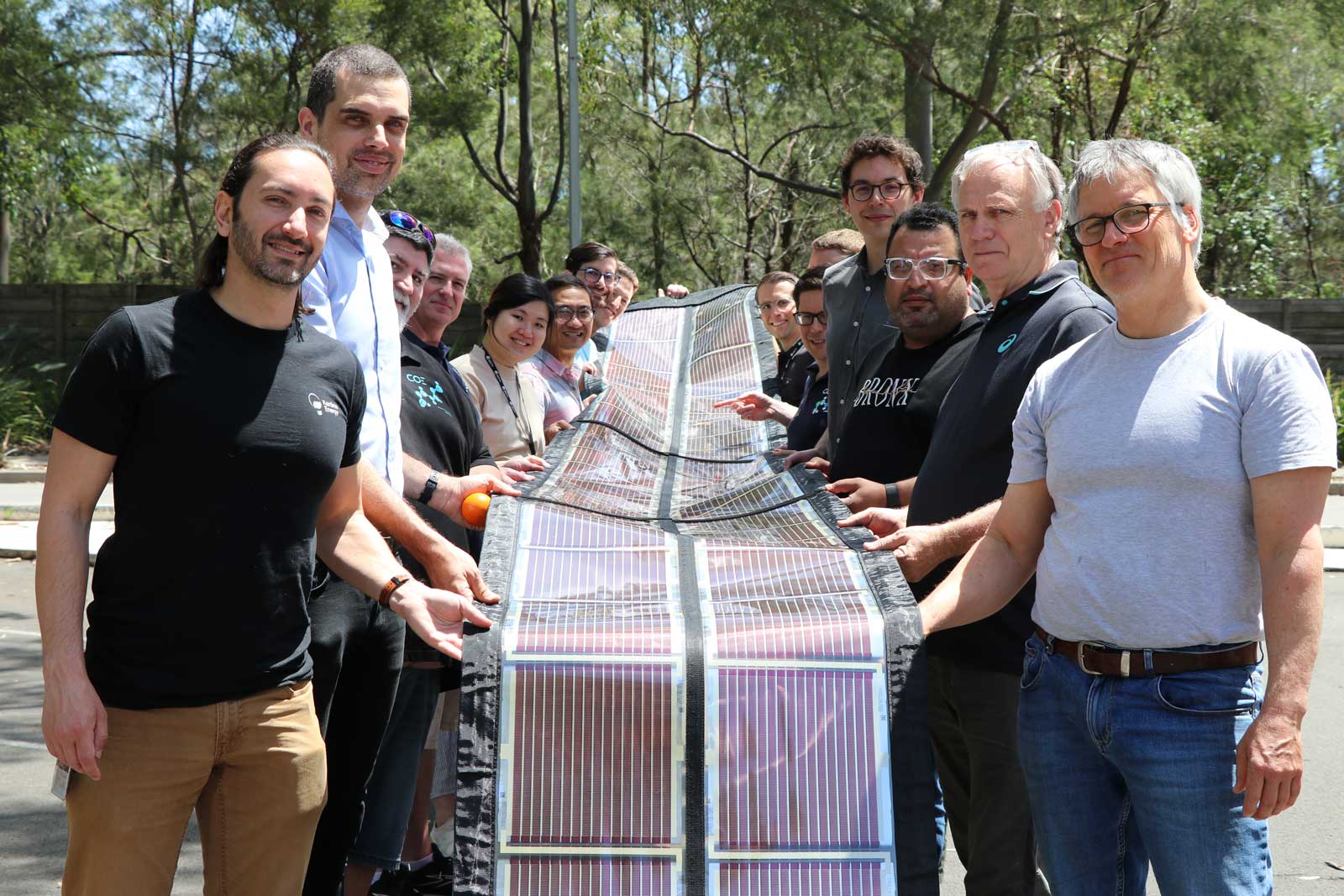
The COE team in Newcastle holding up a roll of Printed Solar designed for the Coldplay concert.
COE, the University of Newcastle Australia 5:43
Learn more
News • 27 Feb 2026
Looking closely at wellbeing data
Last week’s release of the ‘Australian Universities Census on Staff Wellbeing’ delivered headline results and a sector-wide ranking of universities, prompting calls for action to address widespread concerns. Yet the full story remains out of reach.
News • 26 Feb 2026
Narrating Return at Newcastle Art Gallery
As part of the launch of Newcastle Art Gallery’s major reopening exhibition Iconic, Loved, Unexpected, a spatial exhibition in Gallery 10 Narrating Return will open at Newcastle Art Gallery on 27 February.
News • 25 Feb 2026
Exceptional educators celebrated in national teaching awards
Two academics from the University of Newcastle have been recognised for their innovative and creative teaching styles at the Australian Awards for University Teaching (AAUT).
News • 23 Feb 2026
Students, take the lead: how a peer-led program could transform our kids’ trajectories
Giving primary-school students a chance to teach and lead their younger peers not only strengthens their leadership skills, but also improves wellbeing, classroom engagement and student confidence, a new Australian study has shown.
News • 12 Feb 2026
Don’t let perfect get in the way of good uni reforms
Lasting policy reforms, almost always, have difficult beginnings. Think Medicare, the Superannuation Guarantee, or the National Disability Insurance Scheme. They have proven transformative for so many Australians. Yet all three measures weathered early criticism over their impact on social equity, wage pressure and increased public spending.
News • 11 Feb 2026
Post‑mining research comes to life in community art exhibition
A new art exhibition has emerged from a four‑year study led by University of Newcastle researcher Associate Professor Hedda Askland, exploring how the Hunter Valley can navigate its post‑mining future.
News • 11 Feb 2026
From Delhi to Newcastle, full tuition scholarship makes STEM dreams come true
From taking apart video game consoles as a child, to winning software development competitions in school, University of Newcastle Computer Science student Saihajleen Kaur has always dreamt of being behind the scenes of computer tech development.
News • 10 Feb 2026
Centuries-old coolabahs reveal how water and climate shaped the Gwydir Wetlands
New science has revealed some of the Gwydir Wetlands’ iconic coolabahs and river red gums are up to 500 years old.
News • 10 Feb 2026
World-leading MRI upgrade boosts research capability at HMRI Imaging Centre
Hunter Medical Research Institute (HMRI) has unveiled a major upgrade to imaging capabilities with the installation of a new Siemens Healthineers MAGNETOM Cima.X Fit MRI scanner at the Hunter Medical Research Institute Imaging Centre, strengthening the region's capacity for world-class medical research.
News • 04 Feb 2026
New equipment brings cancer's complexity into focus
Researchers are preparing for the arrival of a new state‑of‑the‑art instrument that will accelerate studies into some of the most aggressive cancers.
News • 03 Feb 2026
Yes, weight-loss drugs work but nutrition needs attention
Popular GLP-1 and GIP medications, such as semaglutide (Ozempic, Wegovy), tirzepatide (Mounjaro) and liraglutide (Saxenda) are changing the way obesity and type 2 diabetes are viewed and treated.
News • 31 Jan 2026
‘Window to the brain’ opened with powerful cancer tech
Technology created at The University of Queensland, in collaboration with Newcastle researchers, could improve the odds of surviving brain cancer and change how we treat a range of neurological conditions.
The University of Newcastle acknowledges the traditional custodians of the lands within our footprint areas: Awabakal, Darkinjung, Biripai, Worimi, Wonnarua, and Eora Nations. We also pay respect to the wisdom of our Elders past and present.
